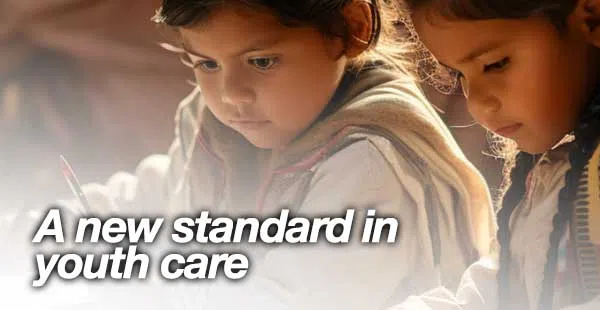
Ranch Ehrlo Society: Setting a provincial precedent and providing a new standard in youth care
The Ranch Ehrlo Society CEO Natalie Huber says receiving the CARE certification is exciting and the staff could not be happier.
“We began as a single non-profit home for six boys with various developmental needs and grew into a multi-service agency delivering a wide range of accredited mental health and developmental services throughout the province,” said Huber.
CARE is an acronym for Children And Residential Experiences, and the certification centers on relationships and builds on long established principals of the non-profit, said Huber.
Many of the principles outlined in the CARE model had already been well embedded and demonstrated at Ehrlo and echoed what we were doing in our day-to-day interactions, she said.
As the first in Saskatchewan to achieve the Cornell University sanctioned certification and the third in Canada, the organization takes pride in their cumulative achievement.
Huber described the distinctive training as “a working model with the goal of creating conditions for change”.
Receiving certification was no easy task.
The work to get to this point began in 2017.
Every staff member at the agency began working towards this certification by focusing on providing care that implements the six guiding principles, which are developmentally focused, family involved, relationship based, trauma informed, competence centred, and ecologically oriented Huber explained.
“We want to make decisions that are relationship based and trauma informed,” said Huber. “So for example, say a student is having a rough day at school and they are having some challenges with the staff in the group home, they may go to their room and can be somewhat destructive. So instead of our staff coming in and being punitive or over-consequencing that young person, they would sit down and think about the backstory of this young person, (who) could come from a difficult family environment and has faced significant trauma. They’ll look at some ways to communicate in order to diffuse the situation and try to bring it around to something more comfortable for them and then maybe introduce something more enjoyable.”
A CARE certification team toured three Ranch Ehrlo campuses this past spring, visiting programs and schools to observe how the organization was faring in their commitment to achieving CARE certification.
“The main thing they looked for was how healthy, working relationships are established and undertaken, among our staff,” said Huber “The care taken to ensure the safety and wellness of our youth, in a way that respects them and also relationships with family, making sure they have connections with family, culture and community.”
Cornell University director of the Residential Child Care Project Martha Holden congratulated the team for successfully completing the CARE certification process noting that “Ranch Ehrlo sets a standard of care that is an exemplary in the field.”

